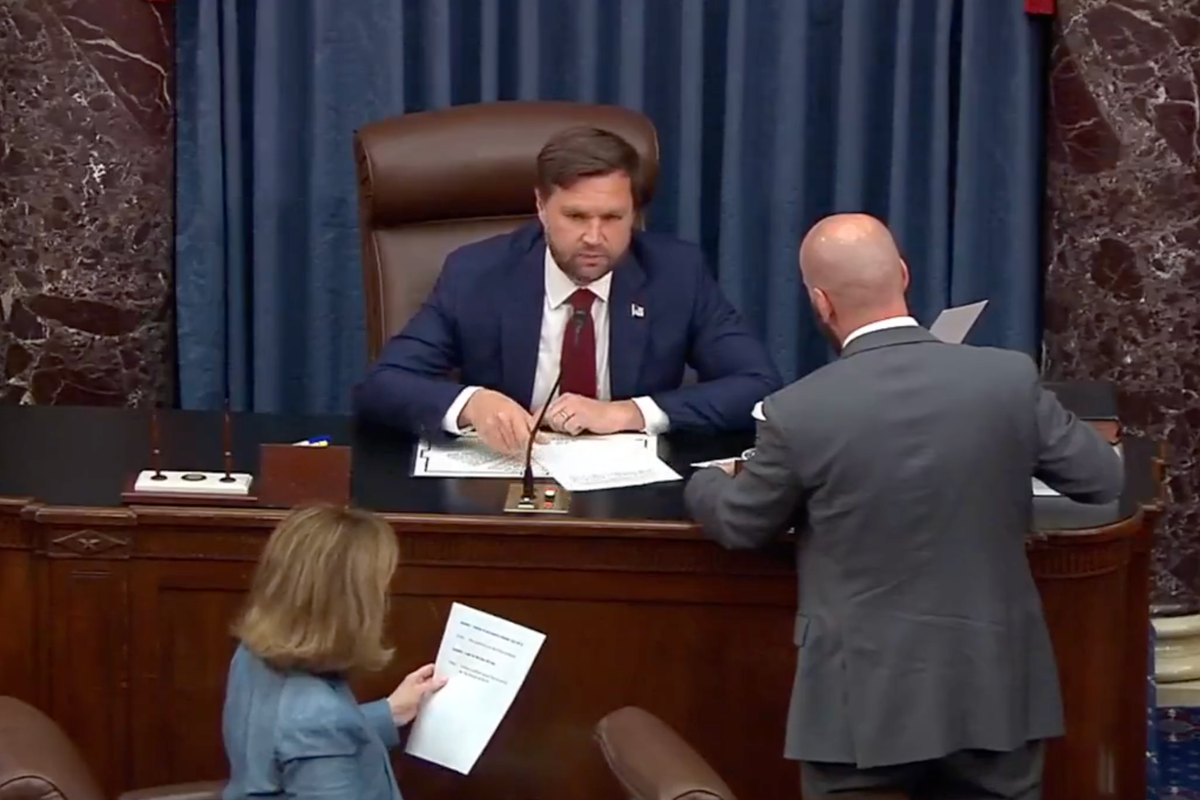Key Republican Senators Oppose Trump’s Spending Cuts, Leading to Tie-Breaking Vote
Three prominent Republican senators broke with their party to oppose a proposal aimed at cutting government spending, leading to a tie in the Senate and requiring Vice President JD Vance to cast a deciding vote. The bill, which seeks to reclaim $9.4 billion in foreign aid and reduce funding for the Corporation for Public Broadcasting (CPB), has sparked significant debate within the GOP.
The Senate advanced the proposal on Tuesday, marking a critical step toward its potential passage. However, the vote highlighted divisions among Republicans, as three senators—Maine’s Susan Collins, Alaska’s Lisa Murkowski, and Kentucky’s Mitch McConnell—chose to side with Democrats, resulting in a 50–50 split in the upper chamber.
Tolong support kita ya,
Cukup klik ini aja: https://indonesiacrowd.com/support-bonus/
Vice President Vance used his tie-breaking vote to move the rescissions package forward from the Senate Appropriations Committee, setting the stage for full Senate debate on Wednesday. The session is expected to include a long series of amendments, followed by a final vote. If successful, the legislation would need to return to the House before Friday’s deadline to avoid a potential Democratic filibuster.
The decision by Collins, Murkowski, and McConnell to oppose the bill drew strong criticism from some within the Republican Party, particularly from the far-right wing. Right-wing commentator Ann Coulter took to social media to express her disapproval, stating that “three Republicans opposed the bill, all women: Sens Lisa Murkowski, Susan Collins, and Mitch McConnell.” She also criticized McConnell, calling him “one of the WORST Senators in American history.”
Other conservative voices echoed similar sentiments, with one user suggesting that Senator John Thune should remove Collins from her position as chair of the Senate Appropriations Committee, claiming she was not a true Republican. These reactions reflect the growing tension between traditional Republicans and the more populist factions within the party.
The bill is a top priority for the Trump administration, which reportedly plans to use a similar process to enact further spending cuts in the future. Last week, Trump issued an ultimatum to senators, warning them that he would withhold support for their reelection if they did not back the measure to defund NPR and PBS.
Senate Majority Leader John Thune, along with other GOP lawmakers, initially resisted the Department of Government Efficiency (DOGE) cuts. As a result, some of these reductions were removed from the bill on Tuesday to secure enough votes for passage. This included a provision to eliminate $400 million in cuts to the PEPFAR program, which supports HIV/AIDS relief efforts globally.
However, even these adjustments were not sufficient to convince Collins, McConnell, and Murkowski to support the bill. Collins criticized the rescissions package, arguing that it lacked clarity and specificity. In a statement, she noted that the White House provided minimal details about the proposed cuts, making it difficult for lawmakers to understand the full impact of the plan.
McConnell shared similar concerns, expressing that while he had no issue with reducing spending, the White House failed to provide adequate information to Congress. He stated, “They would like a blank check is what they would like. And I don’t think that’s appropriate.”
Murkowski, meanwhile, voiced frustration over repeated rounds of rescission attempts in the Senate. She emphasized that lawmakers should be responsible for shaping policy rather than simply executing directives from the executive branch. “We are lawmakers. We should be legislating,” she said. “What we’re getting now is a direction from the White House and being told: ‘This is the priority and we want you to execute on it.’”
As the debate continues, the outcome of the bill will have significant implications for federal spending and the balance of power between the executive and legislative branches. The next steps will determine whether the Trump administration can push through its agenda or if resistance within the GOP will lead to further compromises.







